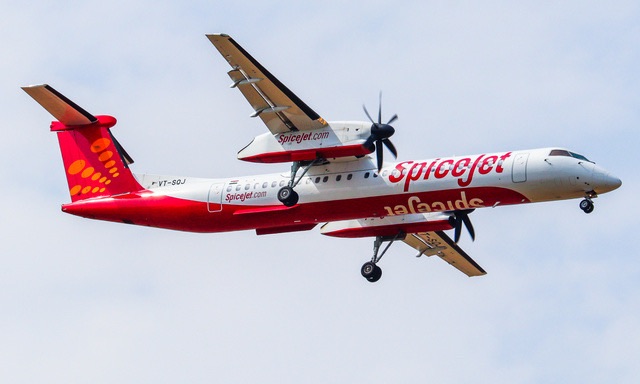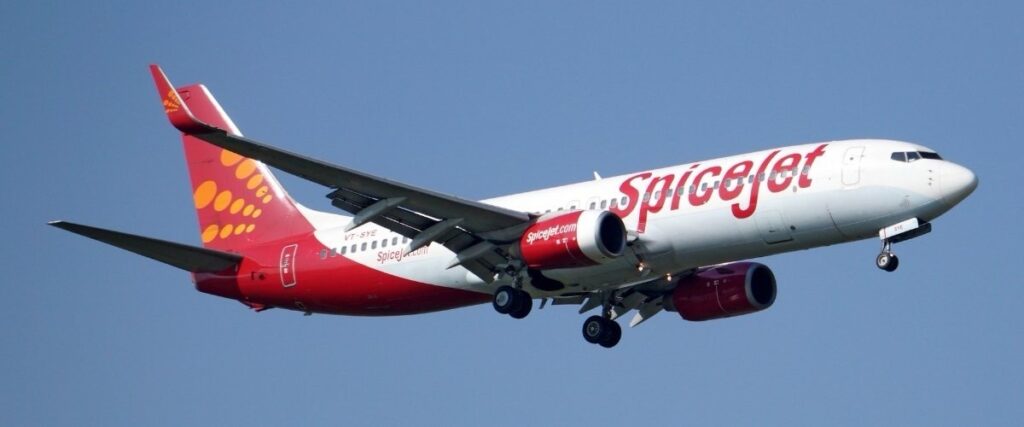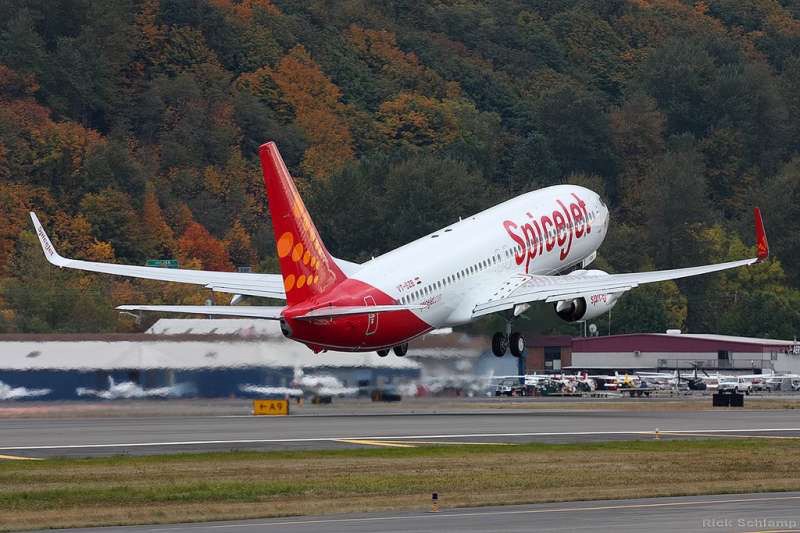In a calculated strategy aimed at broadening its operations and boosting its market footprint, SpiceJet, a prominent low-cost airline in India, has announced intentions to incorporate five Boeing 737 aircraft into its fleet by October 2025. This fleet expansion coincides with the airline’s efforts to address the increasing demand for air travel on both domestic and international routes, with a focus on enhancing connectivity and elevating passenger services.
A Move Towards Fleet Modernization
The inclusion of five Boeing 737 aircraft is a key element of SpiceJet’s comprehensive strategy to modernize its fleet. The new aircraft will be outfitted with cutting-edge technology and amenities, providing improved fuel efficiency and heightened operational performance. This initiative underscores the airline’s dedication to remaining competitive in the rapidly changing aviation landscape.
As the aviation sector rebounds from the effects of the pandemic, airlines like SpiceJet are progressively prioritizing fleet expansion to satisfy the surging passenger demand. The Boeing 737 is renowned as one of the most favored and efficient aircraft models globally, recognized for its fuel efficiency, low operating costs, and dependability. SpiceJet’s choice to invest in this aircraft model highlights the airline’s commitment to sustaining cost-effective operations while enhancing service quality.

Addressing Increasing Travel Demand
SpiceJet’s choice to augment its fleet with five new Boeing 737 aircraft comes as the airline witnesses a significant surge in demand for both domestic and international air travel. Recent reports indicate that air traffic in India has rebounded robustly, spurred by both leisure and business travel. The airline is increasing its capacity to accommodate this escalating demand, particularly on routes experiencing high passenger volumes.
The introduction of these new aircraft will grant SpiceJet the ability to provide more options to its customers, ensuring improved access to a variety of destinations. It will also enable the airline to address seasonal peak demand, especially during key travel periods, thereby enhancing its capacity to operate more frequent flights on high-demand routes.
Elevated Passenger Experience
With the introduction of the new Boeing 737 aircraft, SpiceJet aims to enhance the flying experience for its passengers. The aircraft will feature state-of-the-art cabins, ensuring increased comfort and space. The interiors are crafted to enrich the travel experience with more comfortable seating, improved lighting, and quieter cabins, guaranteeing passengers a smooth and enjoyable journey.

Furthermore, the new aircraft will incorporate advanced entertainment systems and enhanced in-flight services, which will allow SpiceJet to compete effectively with other airlines in the region. As the airline strives to solidify its market position, enhancing customer experience remains central to its strategy. SpiceJet is establishing itself as a low-cost carrier that provides competitive services without sacrificing passenger comfort.
Enhancing Operational Efficiency and Sustainability
Fuel efficiency and environmental sustainability play pivotal roles in SpiceJet’s strategy for acquiring new aircraft. The Boeing 737 is well-known for its low fuel consumption, making it one of the most environmentally friendly choices available for commercial airlines. This not only helps in reducing operational costs but also enables the airline to keep ticket prices competitive while lowering its carbon emissions.
As fuel prices continue to vary and environmental concerns escalate, airlines around the globe are increasingly choosing fuel-efficient aircraft like the Boeing 737 to enhance their profitability and minimize their ecological footprint. SpiceJet’s initiative to integrate more of these aircraft into its fleet reflects the airline’s dedication to sustainable aviation practices, which are becoming increasingly vital in today’s competitive market.
SpiceJet’s Long-Term Growth Strategy
The addition of five new Boeing 737 aircraft is not merely a short-term capacity increase; it is part of SpiceJet’s broader vision for growth and market expansion. As one of India’s leading budget airlines, SpiceJet aims to capture a larger segment of the air travel market, both within the country and beyond.
These new aircraft will not only allow SpiceJet to broaden its domestic network but also improve its capability to service international routes. Already a significant player in the Indian aviation sector, this fleet expansion will empower SpiceJet to compete more effectively against its rivals, particularly on regional international routes.
The airline’s growth strategy encompasses entering new markets, boosting flight frequencies to popular destinations, and introducing new routes to underserved regions. SpiceJet is also eager to enhance its international connectivity, providing more flight options to neighboring nations and other key global destinations.
The Importance of Boeing 737 in SpiceJet’s Fleet
SpiceJet has maintained a long-term partnership with Boeing, having operated Boeing 737 aircraft in its fleet for several years. The airline understands the operational advantages of this model, which include its efficiency, reliability, and capacity. By expanding its fleet with these aircraft, SpiceJet can manage its operations more effectively while boosting profitability and service quality.
The Boeing 737’s appeal in the industry lies in its versatility. It is well-suited for both short and medium-haul routes, making it an excellent choice for domestic as well as international travel. With these new aircraft, SpiceJet will be optimally equipped to cater to a wider array of destinations, ensuring it meets various passenger needs and preferences.
Future Outlook for SpiceJet
SpiceJet’s fleet expansion is a strong testament to the airline’s optimism regarding the future of air travel. The growth of the aviation sector, both domestically and internationally, offers a considerable opportunity for SpiceJet to fortify its position in the competitive airline landscape. The addition of five new Boeing 737s will equip the airline with enhanced flexibility and capacity to serve its passengers effectively.
As SpiceJet continues to expand its network and upgrade its fleet, the airline is poised to remain a significant player in the Indian aviation market. The long-term outlook appears promising, with the airline positioning itself for lasting growth, improved profitability, and heightened customer satisfaction.
Conclusion
The addition of five Boeing 737 aircraft to SpiceJet’s fleet by October 2025 is a significant move in the airline’s long-term growth strategy. With a focus on increasing operational efficiency, improving passenger experience, and expanding its network, SpiceJet is well-positioned to maintain its competitive edge in the ever-evolving aviation industry. As the airline works to meet the growing demand for air travel, these new aircraft will play a key role in shaping its future success.


